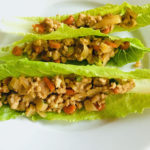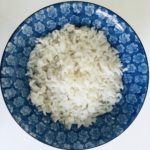A couple of days ago, I criticized the New York Times for its story on gluten. Yesterday (May 10, 2007), National Public Radio aired a very similar story called For Most People, Gluten Isn’t a Diet Enemy. In this piece, as in the New York Times article, there is speculation that there is a “celiac fad diet” and that people are jumping on the gluten-free bandwagon. So I am pondering the question: is gluten-free a fad diet?
If so, then it should be compared to other fad diets, such as The Zone, the Atkins diet and the South Beach Diet. I see 2 main differences between these low-carb diets and the gluten-free diet:
- These low-carb diets all promise weight loss, which is the primary reason for their popularity. By contrast, doctors do not recommend the gluten-free diet for weight loss (although this may be a side benefit); in fact, many people with celiac disease gain weight after going gluten-free.
- These low-carb diets were each created by one person, who then promoted it with books, frozen food, or supplements. I am not saying that the original intent of the creators was not for the good of their patients, but each diet came out of one person’s head. The gluten-free diet is recognized internationally as a medical treatment for the autoimmune disease, celiac disease. There is ongoing research into gluten sensitivity or intolerance as a separate medical condition treatable with a gluten-free diet. Oh, and by way, it is a genetic condition. I’m not sure if they have identified a Zone gene yet. 🙂
“Gluten-free” is not some crazy American diet named after a doctor or a beach. The reason the media thinks it is a fad is because we Americans are just catching up with understanding what other parts of the world (Australia, for example) already know — that gluten-free is a way of life for certain people.
Both news articles imply that the growth of gluten-free products on the shelves is evidence that the gluten-free diet is a fad. I think it means that awareness is increasing, more people are getting diagnosed and that food manufacturers are recognizing that there is a true market of people who cannot eat gluten.
Are people jumping on the gluten-free bandwagon? I don’t think so. I have found that the general perception about the gluten-free diet is that is a curse and a sentence. Almost everyone says to me something like “Oh, that must be so hard. I could never give up bread.” I believe that people go gluten-free only when they are at the end of their ropes — they can’t get a diagnosis, they feel awful, they have tried medications and other diets with no alleviation of their suffering. Most people don’t do it on a whim, and because there is no cheating allowed, it is a commitment that people are unwilling to make.
Not only is the diet difficult at first, but there is a perception that “gluten-free” means “tastes yucky.” Most people’s attitudes about regular old gluten-containing food is like Joe Hotchkiss’s from the NPR story — “he loves the taste, and he can’t imagine why anyone would choose to eliminate wheat, and therefore gluten, from their diet.”
Fortunately for us with a gluten-free life sentence, food manufacturers are realizing we exist and are here to stay.







Sophie says
If the gluten free diet is NOT a fad (most around us are more likely to call us “cursed” – and will offer moral support), the gluten free casein free diet IS a fad.
I’m not saying that the diet cannot do miracles, simply because it can effectively cure celiacs, lactose intolerents, dairy allergics (and the gazillion symptoms associated with those) and by removing both junk food and processed food, it can tackle many more nutrition problems, weight problems etc (all those can be medicaly explained a way or another).
But many many cons have jumped on the boat to make money, profits, and you can find on the web claims that the GFCF diet will cure ANYTHING and EVERYTHING, from divorce to cancer !!!!
for a simple exampleof those claims:
the link betwen fertility and gluten intolerence.
my (male) cousin is celiac and has been on a diet for many years. his sister had 3 miscariages in a row before succesfully giving birth. In her case, getting tested (or not) and tempting a GF diet to stay pregnant not only makes sense, but could help by boosting the odds if she’s indeed an undiagnosed celiac (no, she has not been tested – her choice).
the opposite: putting all “fertility challenged” women on a GF diet doesnt make any sense at all. and claiming that the diet WILL help you have a baby is certainly false.
I cant guess where the journlists found their sources – but if they were hunting for arguments in favor of a fad diet – internet will give plentyful.
my point 3.
going GF is a zero tolerence life commitment – with very serious consequences when you break the deal. and the diet – with its serious social implications – is usually not chosen by the dieter but imposed on the dieter by a diagnosis or a serious illness. You cannot take a break from your diet – not for your honeymoon, not for your pregnancy, not for a party.
as for the growth of shelf space dedicated to Gluten free stuff. I dont care what the reason is, and I couldnt care less. But I make sure to buy from the corner store – to give the owner some reason to keep selling those!
MappyB says
Hello,
I’m Brandi, the girl quoted in the beginning of that Times piece – I just wanted to let you know I posted my experience/thoughts on it on my site in case you would like to read.
Thanks! Also, I just found your site and I enjoy it; I hope you don’t mind me linking to it soon.
alison says
Sophie,
I agree with what you are saying that “going GF is a zero tolerence life commitment – with very serious consequences when you break the deal. and the diet – with its serious social implications – is usually not chosen by the dieter but imposed on the dieter by a diagnosis or a serious illness.”
But I think the same could be said for the GFCF diet. I don’t agree that it is a fad – in fact, most people who have heard of gluten-free still have not heard of gluten-free casein-free and it is a much harder diet than just gluten-free. Do you agree?
Thanks for commenting!
Alison
alison says
Hi Brandi,
Thanks for letting us in on your involvement with the story. I guess any press is good for awareness!
Alison
Sophie says
Yes Alison. GFCF diet can be a medical need. Totally. But my assumption is that the diet comes in two steps. Either like the “ask the doc” question: diagnosed with gluten intolerence, then reducing/cutting dairy as well (for LACTOSE intolerence which is a mecanical consequence of the gluten damage) – or the opposite. Or someone hurt by dairy… who then goes gluten free. (we went from GF to lactose GF free by obligation – but we are not dairy free as with or without dairy doesnt make any difference)
Now my comment was more focused on people who have decided that there is something bad in their diet – do NOT go to a doctor, do NOT get tested for gluten (which should be done – only to update the medical file and make sure no surgery or other medical procedure in the future would be messed up with gluten medication).
Furthermore, some people on a casein free diet rarely know what they are doing, and dont have the smallest clue about where to find casein. They think “dairy” and that’s it – making the diet a true fad, because the diet is done in their head – but not in their actual plate -and often the same can be said to the gluten free diet. (this is important to know, because you’ll find them claming very WRONG assumptions about store bought food – errors that could be fatal to a truly allergic person [unaknowledge traces of dairy in RiceDream milk and ice cream of example])
So my comment was about them – people on wheat free dairy free diet – claming to do and benefit from a GF CF diet. You’ll meet them in the WF aisles, buying spelt bread and spreading it with tofu and pretending they do the GFCF diet – totally unaware (or ignoring) the gluten in the bread and the casein in the tofu, while claming that their health is hundred times improved (which might or might not be confirmed by their doctor)
Now they are plenty of people on a true GFCF diet – with medical support. I do sincerely hope that this diet can do miracle to autistic kids for example. But again, the cost and pain of the diet needs some serious motivation – because it might be for life and without the option of an occasional “binge”.
Last – I wrote my comment to warn about the possibility of creating intolerences. We all know that a no lactose diet WILL CREATE a lactose intolerence. So going on a diet “for nothing” might create a serious problem a bit later when you’ll need medication that comes only in a lactose pill form.
And for people who do quest for the perfect diet which will change their life forever, I recommend the “reading labels” diet. Stop eating anything that has more than 5-15 ingredients. Stop eating anything that has “things that nobody can pronounce or understand the name”. Stop eating junk food – and eat your veggies. This is the quiet and unaknowledge side effect of any “diet” such as GF or LF or GFCF – and it might as well be the most important aspect of those diets healthwise – making most or anybody on those diets feeling better virtually overnight! (and feeling extremely wrong after a so unhealthy triple whooper – which they might attribute to the presence of such or such ingredient while they should just look at the fat/proteins/calories amount of that killer)
Dietly yours, Sophie – on a zero tolerence GF diet.
another outspoken female says
Thanks for popping over to foodnazi. I think there is something deeper going on here, particularly in the developed world food has a pseudo-sacred status. When someone else changes their diet (for a medical reason such as coeliac or even as a transitory experiment) it threatens some people. They are no longer conforming and the group doesn’t like it. It is easier to attack the person who is making the changes rather to examine their own life to see if the assumptions they’ve made their whole life are correct.
If you stop eating wonder bread, heck any bread at all, you might change the way you vote, your religion, your moral code? Well, that’s my theory 🙂
tyler says
Of course this is a fad! If the responses people come up with are like the previous from “outspoken female”, there is obviously a problem… do people think that eating widely cultivated grains is a conspiracy to induce conformity? If wheat or barley were unhealthy to the general population, I’m fairly certain we would’ve come to that conclusion over the last 6,000 years of cultivation. I guess we should all “make the choice” to not eat other things, like fruit (MANY food allergies related to fruit proteins) or any type of nut (nut allergies are much more common than celiac) or breathe the air which contains pollen (by far most common allergy) Come on people, think about this before you write ridiculous things, or decide not to eat an important group of foods. There is no doubt in my mind of “fad” status. Just like anti-sugar, pro-agave, or anti-gelatin, pro-pectin, whatever it may be. Most people ARE NOT SMART ENOUGH to think about these things, and come to their own sound conclusions, so PLEASE stop spreading the inane “hype” which only inflames the ignorance. IF YOU ARE DETERMINED TO BE GLUTEN INTOLERANT, DON’T EAT GLUTEN. IF NOT, FEEL FREE. Simple as that. Apply this to other food-allergy-related questions as necessary.
alison says
Tyler,
The FACT is that we are eating more gluten than ever before. And more dairy. And more soy. etc. Even sesame allergies are increasing… why? Because people are consuming more and more sesame. Same goes for sugar. So there is the reality that our environment (what we eat) is changing and our bodies cannot cope with the change.
Unless your statistics are different than mine, there are about the same number of people with nut allergies as their are with celiac. This doesn’t include the many more who are non-celiac gluten intolerant. Food allergies are also much different than gluten intolerance or celiac disease — with food allergies, you generally know right away that you are reacting to it. With intolerance or even celiac disease, the symptoms can be more subtle and can develop over time. There is no reason to avoid a food if you are not allergic or intolerant to it. But if you are, then you should. I don’t understand your reasoning on that point.
It doesn’t take determination to be gluten intolerant (I find this a ridiculous statement), but it does take determination to get diagnosed, to recognize that gluten and other foods really are responsible for people’s ill health and to stay on the diet. I personally write about being gluten-free and hope to educate others so they don’t have to be sick like I was. It’s frustrating and depressing to think about relatives whose lives could have been longer and healthier if only we had known about the problems that gluten can cause.
I wonder why you are so anti-gluten-free?
Lila says
No doubt 1% of the population suffers from Celiac Disease and for them, a gluten-free diet is not a fad. However, as evidenced, there are many people who are self-diagnosing and who don’t really have a wheat allergy. It’s part of a fad for those people. For example: My roommate claims to have a wheat allergy, and won’t eat a hot dog that has touched a bun, but she’ll drink regular (not gluten-free) beer, including wheat beer with no problems. Hmmmmm.
Sue says
Wow – I was just checking the ingredients in Swanson chicken broth and happened on this site, then this article, then saw “Tyler’s” vicious post. I was a skeptic about the recent “gluten-free” publicity till a couple of years ago when my 24 year old niece was diagnosed with celiac disease after a year of misery, including high-dose prednisone, multiple antihistamines, and injected TNF inhibitors, none of which touched her continuing diarrhea and whole-body hives and bouts of angioedema. She was at wit’s end when celiac with uncommonly severe skin complications was diagnosed. After a month on gluten-free diet she was able to ween off the med.s. She still has immediate reactions of hives and stomach upset if she accidently ingests any amount of gluten, so the current focus on labeling and making GF foods available is critical to her health.
I was diagnosed with IBS in 1976, asthma in the 80’s, ankylosing spondylitis (a type of inflammatory arthritis) in the 90’s, and hypothyroidism in 2007. When my chronic anemia got worse again this spring, my internist sent me to a gastroenterologist for testing to see if I had internal bleeding. the GI biopsied my small intestine (among other things) and discovered long-term damage from celiac disease. So, I’m on a gluten free diet now, but certainly not by choice or “fad”, and wondering whether I would have the whole slate of autoimmune disorders I live with if there had been less resistance and more information in the American medical community about celiac disease. So gee, Tyler, it’s not just a fad, and maybe you should get some help for your extreme feelings of hostility.
alison says
Go Sue! I’m sorry you had to go through all of those health problems when it was celiac all along. We need to continue to educate and raise awareness! Thank you for your comment.